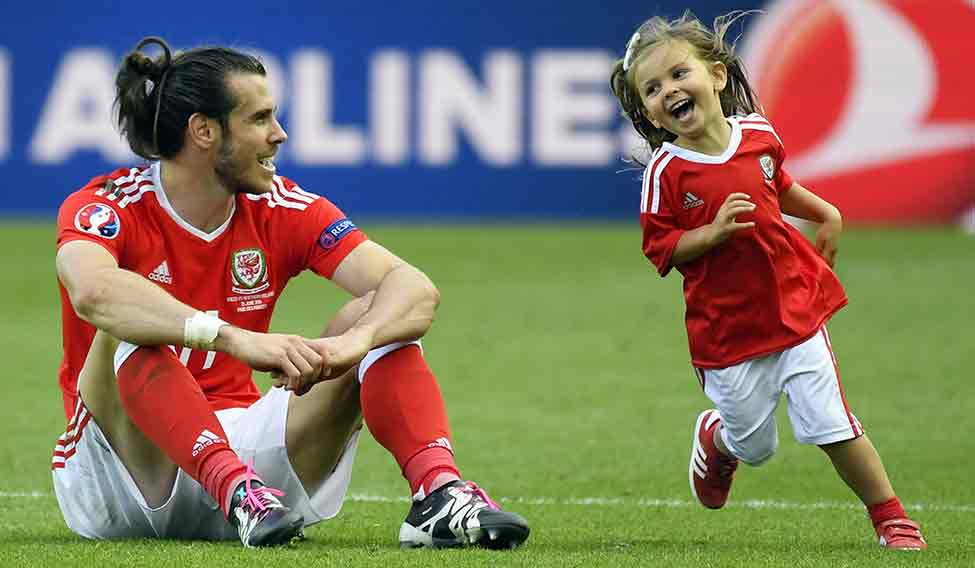While the United Kingdom faces a slow and painful exit from Europe, England’s football team managed to get out swiftly and ignominiously. Defeat to Iceland, a nation with a population the size of one English city, Leicester, ranked as the most embarrassing in its history since England was knocked out of the World Cup in 1950 by an American side that was largely amateur and had borrowed a goalscorer from Haiti.
The old country which once had designs on telling the world how to play and to trade now feels isolated and ridiculed. The one corner of the UK that proved the exception was Wales. Thanks in huge measure to Gareth Bale’s goals, the Welsh reached the quarter finals of a major tournament for the first time since John Charles and company played Pele and Brazil in the last eight of the 1958 World Cup.
At the Football Association headquarters in London, the ruling “committee” received the immediate resignation of Roy Hodgson, a broken man and now the ex-manager. In the coming months, England will count the cost, literally, as it tries to renegotiate its sponsorships, starting with the American sportswear manufacturer Nike that will not deal nicely with plummeting replica kit sales.
In the hours before “Iceland” happened, the dear old F.A. was talking of using the numbers that its German equivalent, the DfB, negotiated recently with Adidas to clothe its team. That price? Adidas agreed to pay the DfB ¤50 million a year from now until 2022.
There are good reasons for that. Germany is the world champion. Germany still has a chance to win the cup, now that Spain’s glorious reign has been blown apart by Italy. And Germany, once it put Julian Draxler onto the left wing and Mario Gomez to centre forward, looked a whole lot more potent than it had during the laboured first round of games.
That is where the real players step up in tournaments.
The Germans, the Italians, the French all kept some powder dry until the group stage boredom was done. And then they stepped up their pace, showed their intent, and blew away opponents in knockout formula.
Where Germany, with beautiful goals and a smile on the face of Draxler, disposed of Slovakia, Italy proved so united in defence, midfield and attack that Spain found it hard to breath, let alone progress.
How those Italians fool us in tournaments! They arrived in France calling their own team the worst they have had in 50 years, but those of us who have seen and heard them over decades knew that when the Azzurri claims to be weak and weary is no time to believe them.
Italy wears pessimism like a cloak to be cast aside when the games get tough. And Italy, bonded by its coach Antonio Conte (who will be Chelsea’s manager once the tournament is over) had too much power, too many wiles, and two goalscorers to see off the now faded Spaniards.
The game that counts now, Germany versus Italy in Bordeaux on July 2, will be perhaps the toughest either will face in the competition. How often has Germany beaten Italy in major tournaments? The answer is none. It is not always pretty with Italy, but throughout history its teams come out tough, bonded, and knowing how to squeeze the opposition until the pips squeak.
Intriguing. And the others? By now, you will know if Portugal has managed to give Cristiano Ronaldo one last ride towards a major prize—or whether Poland’s Robert Lewandowski has managed to break his duck and get a goal in this event.
On July 1 night in Lille, the stadium where the grass had to be torn up and replaced midway through the tournament, Wales and Belgium are due to contest their merit. Here, again, are outstanding individuals of contrasting type.
Bale’s incredible pace and his powerful free kicks? Or Eden Hazard’s dancing feet that make him look at his best like Belgium’s version of Fred Astaire, with a football at his boots?
The Belgians should have too much for Wales, but Belgium has not until now been the sum of such considerable skills that its team has been called The Golden Generation for some four years.
Kevin De Bruyne, Romelu Lukaku, and, of course, Hazard came to this event with huge reputations to enhance. They did not show it against Italy in the group phase, but must surely overcome the team spirit of Wales or go out.
Finally, the French national stadium north of Paris will be filled for the home side versus Iceland. Les Bleus has struggled to fulfill expectations. Its coach Didier Deschamps has nothing like the cohesion of Italy, whose blue shirts all attack together and defend together. But gradually, the likes of Paul Pogba and Antoine Griezmann have shown their power in midfield and their goal poaching instinct in attack, and just enough solidarity at the back.
It would not be France unless there were trials and tribulations, and don’t forget that this tournament is held in a country on constant vigil against terrorism. And a nation bedeviled by rapid labour strikes affecting train and air travel for those trying to get around the country.
There will be no sigh of relief until this Euro is over. And no meaningful celebration until or unless Les Bleus are triumphant. Against the minnows of Iceland on Sunday? A foregone conclusion, you might think. But England thought that until it actually met, and was soundly beaten, by the men from the Arctic Circle.
Watch Kari Arnason and Ragnar Sigurdsson run and cover in defence (Sigurdsson scored a goal against England, and with the best tackle of the 40 games so far, stopped Jamie Vardy scoring for England). Watch the Icelanders run and you see mighty hearts beating inside athletic frames. This is the tournament of their lives, and as Leicester City showed, 2016 is the year the underdogs bite.





